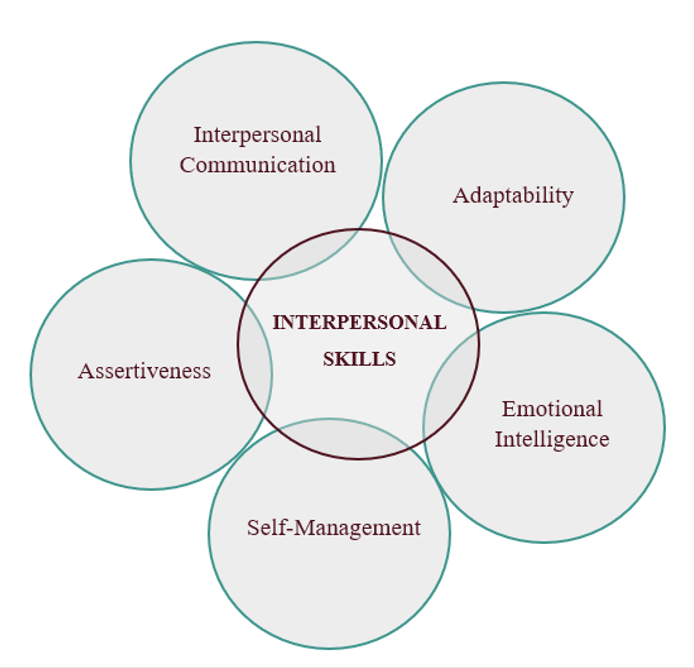
2025 Education Conferences To Unveil The Role of Interpersonal Skills In Academic Success
Posted on : August 08, 2024

Interpersonal skills are necessary for success in almost every aspect of life, but their importance is particularly pronounced in academic settings. As students navigate through their educational journeys, the ability to effectively communicate, collaborate, and resolve conflicts plays a crucial role in their success. As stakeholders in education, including those participating in the Education 2.0 Conference, seek innovative approaches to learning, the integration of interpersonal skills into curricula has become a key focus.
-
The Essence Of Interpersonal Skills In Learning Environments
At the heart of academic success is the ability to interact constructively with teachers, peers, and professionals. Effective communication, one of the primary components of interpersonal skills, ensures that students can clearly articulate their ideas and absorb information from others. This is particularly vital as students often need to engage in discussions, work on group projects, and present their work. Moreover, the empathetic understanding of peers’ viewpoints and challenges enriches the learning experience. This empathy leads to better collaboration. Developing these skills also promotes a supportive educational atmosphere, encouraging students to thrive and participate more actively in their own learning processes.

Source: BCcampus
-
Enhancing Academic Performance
Research has shown that students who possess strong interpersonal skills tend to perform better academically. These skills allow students to express their ideas more clearly, gain more from teacher feedback, and engage more deeply with the learning material.
In environments where teamwork and peer-to-peer interaction are encouraged, such as those often discussed in education conferences such as the Education 2.0 Conference slated for 2025, these skills become indispensable. They not only promote a more engaging learning environment but also prepare students for real-world scenarios where such skills are mandatory.
-
Leadership And Initiative
Interpersonal skills are also closely linked to leadership and the capacity to take initiative. In academic settings, students who can effectively lead group projects or spearhead initiatives in social clubs tend to develop strong leadership skills early on. These skills include the ability to motivate peers, delegate tasks, and make strategic decisions, all of which are critical in both academic and professional settings.
-
Conflict Resolution In Academic Collaborations
Group projects and collaborative research are common in academic settings, often leading to conflicts. The ability to resolve these conflicts amicably is another aspect of interpersonal skills that contributes significantly to academic success. Effective conflict resolution ensures that all group members can work together harmoniously, leading to more productive and successful outcomes. This skill is especially important when participating in global events and workshops, where teamwork and collaboration are often required.
-
Adaptability And Cultural Sensitivity
In today’s globalized academic environments, students often interact with peers from diverse cultural backgrounds. Interpersonal skills thus also involve cultural sensitivity and the ability to adapt one’s communication style to different cultural contexts. This not only enhances personal interactions but also prepares students for global citizenship, an increasingly valuable trait in the interconnected world.
-
Interpersonal Skills In Online Learning Environments
With the rise of online education, as frequently discussed at the Education 2.0 Conference, the importance of interpersonal skills has adapted to new mediums. Virtual classrooms demand a different set of interpersonal dynamics, where students need to be more proactive and intentional in their communication. Educators are also finding innovative ways to promote these skills through online platforms, ensuring that students remain engaged and connected despite physical distances.
The transition to online learning environments has underscored the need for students to be not only technologically proficient but also capable of maintaining effective communication without the cues and immediacy of face-to-face interactions.
-
Preparing For Future Challenges
As the academic environment becomes more interactive and interconnected, the demand for strong interpersonal skills will only increase. Participating in educational events and conferences is one way for students to develop these skills.
Education events such as the Education 2.0 Conference in Vegas are designed not only to provide learning opportunities but also to allow students to practice and refine their interpersonal abilities in real-world scenarios. These experiences are invaluable, equipping students with the skills necessary to navigate future challenges in both academic and professional arenas effectively.
-
Long-Term Benefits Beyond Academia

The benefits of strong interpersonal skills extend far beyond academic achievements. These skills are integral in professional settings and personal relationships. Students who develop strong interpersonal skills are better prepared for the complexities of the modern workforce and are more likely to lead fulfilling personal lives.
The ability to communicate effectively, empathize with others, and resolve conflicts gracefully is advantageous in all spheres of life, fostering better relationships and more successful career trajectories.
-
Conclusion
In conclusion, as we look forward to education conferences, it's clear that interpersonal skills are more than just complementary to academic success—they are fundamental. They equip students with the necessary tools to succeed not just in their current academic pursuits but also in their future careers. Upcoming education events like the Education 2.0 Conference gearing up for its Spring Edition in Vegas continue to push this narrative forward, ensuring that the next generation of learners is versatile, adaptable, and primed for success.
FAQs
-
How can students improve their interpersonal skills?
Students can enhance their interpersonal skills by participating in group projects, joining clubs and teams, and taking part in workshops and seminars that focus on communication, leadership, and emotional intelligence.
-
Are interpersonal skills linked to better academic outcomes?
Yes, numerous studies indicate that strong interpersonal skills correlate with improved academic performance, as they enhance communication, collaboration, and understanding in educational settings.
-
Can attending educational conferences improve my interpersonal skills?
Absolutely. Attending educational conferences such as the Education 2.0 Conference allows you to network with peers and experts, engage in discussions, and participate in interactive sessions, all of which can significantly boost your interpersonal skills.
-
How can attendees of the Education 2.0 Conference utilize interpersonal skills to maximize their conference experience?
Attendees can maximize their experience by engaging actively in discussions, asking insightful questions during sessions, and participating in networking events. Effective listening, clear communication, and respectful discourse can lead to more meaningful connections and collaborations.
-
Can participating in the Education 2.0 Conference lead to academic collaborations, and what interpersonal skills are vital for these collaborations?
Yes, the conference can be a fertile ground for initiating academic collaborations. Vital interpersonal skills for these collaborations include clear communication, reliability, conflict resolution, and the ability to compromise and negotiate, ensuring that all parties can work together effectively toward common research or educational goals.










